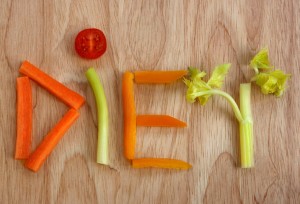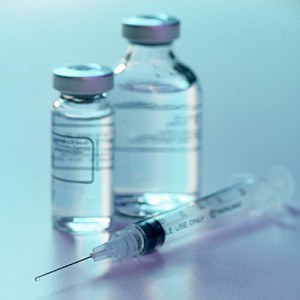Canadian Health Care Mall: Diabetes – diet and insulin
DIET AND INSULIN
I have been told that I am going to have to start insulin after many years of diet and tablets. Will my diet need to change?
It would be helpful if you could discuss your present eating habits and lifestyle with a dietitian before you start on insulin. If you have been trying to avoid the need for insulin by restricting the amount of carbohydrate you eat, you may well be advised to regulate your intake to balance with your insulin. Because your diabetes is no longer able to be controlled with diet and tablets, it is very likely that you are passing out some glucose in your urine. This is a loss of calories. When you start insulin and your diabetes becomes more controlled this loss of glucose in your urine should stop and your weight may increase. Therefore this would be an excellent opportunity to discuss any possible changes with a dietitian. 
I am quite a thin person but have been told to watch my ‘diet’. Why?
The word ‘diet’ can often be misleading, as many people think of a diet only in terms of a weight-reducing diet. But ‘diet’ just means our food intake, or it can mean a course of food prescribed for a particular disorder. For a person with diabetes your diet is your eating plan. It might be less confusing if we said ‘food plan’ or ‘eating plan’ instead, but most of us use ‘diet’ in our everyday conversation as it is a familiar term.
Everyone with diabetes, regardless of their weight, should be encouraged to follow a healthy eating plan or diet. If you are taking insulin then the aim is to balance your food, activity and insulin.
Advice would include the following points.
- Eat some carbohydrate foods at each meal. Carbohydrate foods are starchy or sugary foods such as bread, pasta, potatoes, rice, chapatti, roti, pulses, cereals, fruit, biscuits and crackers.
- Eat only moderate amounts of proteins, even though they are an essential part of everyone’s food intake. Foods high in proteins include meat, fish, eggs, cheese, pulses including soya products, Quorn and nuts.
- Be careful with fats. Fats are used for energy and are a more concentrated source of calories than either carbohydrate or protein. Taken in excess, fats can lead to weight gain. Examples of fats are butter, margarine, cream, lard, ghee and vegetable oils. Fried food, cakes and pastries are also high in fats. The choice of fats can also be important as saturated fats and trans-fats can increase your risk of heart disease, so choosing more monounsaturated fats, such as olive oil, is recommended.
Most people eat roughly the same amount of food each day so keeping your carbohydrate and calorie intake fairly constant both in quantity and timing can help when finding a balance with your insulin. Both food and insulin may have to be adjusted for exercise. A dietitian can assess your diet and advise you on the essential changes you need to make while trying to retain as much as possible of your previous eating pattern.
Do people taking insulin need to eat snacks in between meals?
Sometimes they do. When the pancreas functions normally, it produces insulin ‘on demand’ when you eat and ‘switches off when the food has been used up. Injected insulin does not ‘switch off in this way. As injected insulin has a peak effect at certain times of the day, it is important for you to cover its action by eating a certain amount of carbohydrates, or you will have a hypo. It is worth remembering that the carbohydrates will last longer if they have a lower glycaemic index (usually rich in fibre), as they are more slowly absorbed.
If you are taking a normal insulin before meals, you could try a very short-acting insulin analogue, such as NovoRapid or Humalog. These are designed to provide insulin for the following meal but not to have an effect between meals, so you can avoid snacks. There are many ways in which you can adjust your insulin regimen to suit the life you lead, so talk with your doctor or diabetes specialist nurse about these.
As I have to take insulin should I eat a bedtime snack?
It depends on which insulin regimen you are on and what level your blood glucose is at bedtime. If you are taking mixed insulin twice a day, you may need a small bedtime snack, such as a piece of toast, fresh fruit, small sandwich, a small bowl of cereal or a yoghurt. It is not advisable to go to bed with a blood glucose level of less than 7 mmol/litre. If it is lower than this you run the risk of having a hypo during the night. If you are on a regimen of a long-acting insulin and three short-acting insulin injections (basal bolus) a bedtime snack should not be necessary. If you do need a bedtime snack your insulin may need adjusting.
Should I increase my insulin over Christmas to cope with the extra food I shall be eating?
Yes, you can take extra insulin to cover the extra carbohydrates that you eat on any special occasion, not just Christmas. At Christmas most people (including people with diabetes) eat more and this is fine. But it is also worth remembering that extra food will be stored and will increase your weight! Any extra activity (such as a walk, or dancing) will help to reduce the effects of the extra food.
Extra carbohydrate foods will need extra insulin and some trial and error may be required to achieve the correct increase in your dose. It would be safer to increase your insulin by a small amount (e.g. one to two units) at a time, unless you have experience of how much extra you require.







